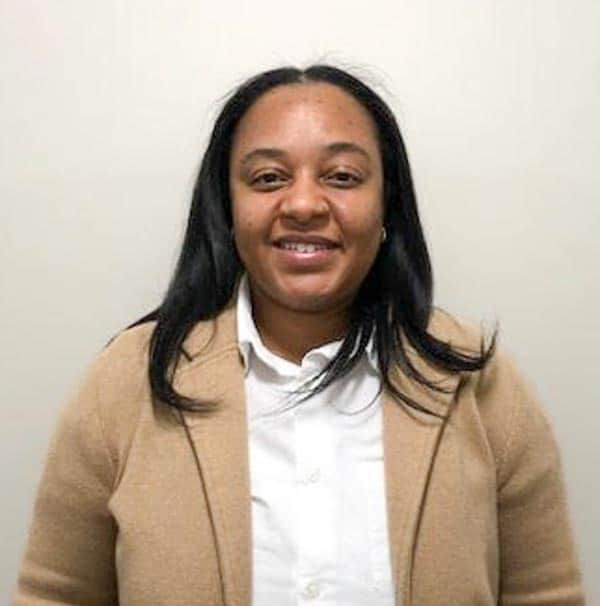Heavy drinking and collegiate life often seem to be bedfellows. Getting hammered on Jungle Juice at frat parties, mid-day beer pong tournaments and sneaking into local watering holes with a fake ID almost seem like a right of passage. Unfortunately, for some college students, excessive drinking during the college years can lead to a severe alcohol use disorder. At CuraWest we offer effective alcohol detox options for young adults who are still enrolled in or recently graduated from college. Our facility is centrally located near the University of Denver, Denver Metropolitan University and Colorado University.
There are certain risk factors that make some people in this age group more susceptible to developing alcohol use disorders including genetic predisposition, high stress levels, underlying mental illness and peer pressure. Combine these risk factors with access to alcohol, inconsistent enforcement of underage drinking laws and limited interaction with authoritative figures and you could very well have a recipe for alcohol abuse on your hands. The good news is that recovery is possible regardless of your age, and with the right coping mechanisms and relapse prevention tools in place you can maintain sobriety regardless of your environment. To learn more about the effective detox services we provide, contact us today.
Alcohol Abuse Statistics
The majority of college students are no strangers to excessive drinking. According to the National Institute on Alcohol Abuse and Alcoholism, almost 53 percent of full-time college students (between the ages of 18 and 22) drank alcohol at least once within the past month; 33 percent reported binge drinking at least once in the past month. Binge drinking is defined by consuming more than five alcoholic beverages in one sitting for males or more than four alcoholic beverages in one sitting for females. While binge drinking is very common, many college-aged students admitted to drinking twice that amount in one sitting. This drinking pattern is known as high-intensity drinking and can lead to a host of serious consequences, including alcohol poisoning. The consequences of drinking, binge drinking and high intensity drinking in college are severe.
Consequences of College Alcohol Abuse:
- Assault – NIAAA reports that approximately 696,000 college students have been assaulted by another student who has been drinking heavily.
- Sexual Assault – Unfortunately, sexual assault and date rape are somewhat common on college campuses throughout the U.S. and many of these sexual incidences are linked to alcohol. NIAAA reports that 97,000 students between the ages of 18 and 24 experienced sexual assault or date rape while intoxicated or at the hands of another student who was intoxicated.
- Academic Issues – NIAAA reports that one out of every four college students has reported an academic issue as a direct result of drinking alcohol. This could be showing up to class late, skipping class entirely, falling behind on schoolwork or being placed on academic probation. The report states that one out of every six college students who admitted to binge drinking at least three times per week performed poorly on at least one major exam.
- Fatality – The same report states about 1,519 college students die from alcohol-related injuries. Accidental injuries include motor vehicle crashes and an increase in risk-taking behaviors, which can lead to a range of other accidents. Intentional injuries include suicide attempts.
Seeking Treatment
Seeking professional treatment sooner rather than later is a good idea, seeing as symptoms associated with alcohol abuse and dependence only worsen over time. To learn more about CuraWest and our program of alcohol detox, contact us today.

Our Drug & Alcohol Detox Services Include
Alcohol Treatment for College Students
There are several treatment routes to take if you or your loved one is enrolled in college and in need of professional addiction treatment.
Treatment Options Include:
- Medical Detox – We suggest beginning with medical detox and transitioning into the next appropriate level of care. It is recommended that anyone who has been struggling with alcohol abuse undergo withdrawal in a closely monitored environment seeing as both physical and psychological symptoms can be unpredictable. At CuraWest we offer case management services and aftercare planning so our clients can make a seamless transition from detox to the next appropriate level of care.
- PHP or IOP – Many college students choose to transition into partial hospitalization or intensive outpatient treatment once they complete detox. These levels of care provide intensive behavioral therapy, medication assisted treatment options and holistic approaches to recovery while providing clients with some flexibility to attend school. PHP and IOP focus on the development of healthy coping mechanisms and relapse prevention techniques.
- Residential Inpatient Treatment – If an alcohol use disorder is severe we recommend that a person transitions from medical detox to residential treatment, where they receive around-the-clock support and more intensive therapy.
Ready To Begin Your Drug & Alcohol Detox?
We Offer A Safe & Effective Program
Don’t let Drug & Alcohol addiction control your life.
Call us today and let’s get you started on the path to a better you.
Staying Sober in College
Say you recognize your drinking has gotten out of hand and you make the decision to seek medical detox. You undergo a safe withdrawal process under the close care of a team of medical professionals. What’s next? Do you return back to student housing? Do you find sober roommates? Do you start going to on-campus recovery meetings? Your personal aftercare program is going to depend heavily on your unique needs. At CuraWest we offer case management and aftercare services, which might include treatment placement.
If you are serious about staying sober in college we recommend taking the following steps:
- Once you complete medical detox, transition into a level of care – This could mean transitioning into a PHP or IOP program, or finding a residential inpatient treatment program. Your case manager is going to help you determine which level of continued clinical care is the best option for your unique case.
- Find a group of sober peers and spend as much time with them as possible – There is a slim chance of maintaining sobriety if you keep showing up to frat parties once medical detox concludes. Our case managers will help you find age-appropriate recovery meetings and other recovery resources in your immediate area. One such resource includes the Colorado Conference of Young People in AA which maintains a list of young-people’s recovery meetings in Colorado.
- Prioritize your recovery over everything else – It is easy to begin prioritizing midterms, social interactions or future plans, but it is important to stay focused and vigilant about your personal program of recovery. If your recovery falls by the wayside, then chances are so will your classes, relationships and responsibilities.
- Avoid triggering situations – It might be impossible to completely avoid the stress of a major exam or the temptation that goes hand-in-hand with peer pressure. This is where your relapse prevention techniques will come into play. It is possible, however, to avoid social events that revolve around drinking, to avoid friends that don’t support your recovery and to avoid procrastinating on assignments you know shouldn’t wait until the last minute. Take steps to take the pressure off of yourself whenever possible.
Begin Healing Now!
Have A Call With One Of Our Treatment Advisors
Don’t Suffer Any Longer
Begin Our Simple Admissions Process
At CuraWest we have developed an admissions process that is simple and uncomplicated, and can often be completed over the phone in a matter of 15 minutes. The moment you or your loved one makes the decision to give us a call we begin developing a viable plan of action. We conduct an initial addiction assessment that helps our clinical team determine which detox methods are going to be the most beneficial. We then offer free, no obligation insurance benefit check and go over additional coverage options whenever necessary (including self-pay and private pay). We arrange reliable transportation to our facility and wrap up the initial phone call by answering any additional questions you might have for our Treatment Advisors. To begin our admissions process and get started on your own personal journey of recovery as quickly as possible, contact us today.

Reviewed for accuracy by:
Jasmine Billups
LPC-S
Jasmine has worked in the mental health field for over 18 years. She earned her B.A. in Psychology with a Minor in Child and Family Relations from North Carolina Central University, and her M.A. in Mental Health Counseling from Argosy University. Jasmine is a Licensed Professional Counselor Supervisor and has specialized in addiction for over 10 years.


































